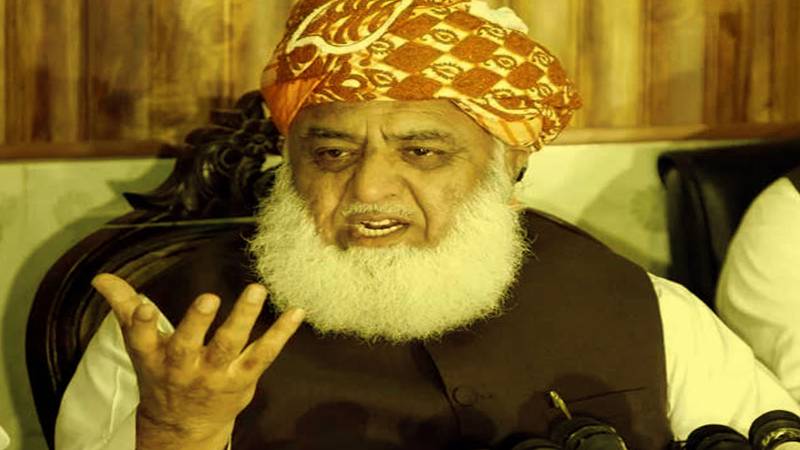
Jamiat Ulema-e-Islam (JUI-F) Emir Maulana Fazlur Rehman said that the no-confidence motion that eliminated former Prime Minister Imran Khan was tabled on the orders of former Army Chief General (retired) Qamar Javed Bajwa.
While giving an interview on a private news channel, Fazl said, "I was personally against the no-confidence move, but if I had said no despite the insistence of other parties, the impression would have been given that I 'saved' the PTI founder."
The PDM ousted the Pakistan Tehreek-e-Insaf (PTI) government in April 2022, and the multi-party coalition, led by Shehbaz Sharif, governed the country for 16 months before handing over power to the caretaker government.
Khan first maintained that the US had him removed, an accusation that the Joe Biden administration flatly denied. However, the former prime minister eventually transferred the blame to General Bajwa.
In an interview in February last year, Khan, citing an alleged chat between the retired general and a journalist, stated that General Bajwa had "accepted and clarified that he was behind our government's ouster."
After becoming the first prime minister to be deposed by a no-trust motion, Khan maintained his rant against the establishment; nevertheless, lawmakers also allege that the ex-army chief was complicit in the PTI's collapse.
During the interview, Fazl said: "While the Pakistan Peoples Party (PPP) was running the movement for a no-confidence motion, Lt Gen (retd) Faiz Hamid told me that I could do whatever I wanted, but within the system."
He said that Hamid warned him that he could not "do anything outside the system," which means that all moves should be made inside parliament rather than on the streets.
"But I rejected his directions," he claimed, adding that afterward, the Balochistan Awami Party (BAP), Muttahida Qaumi Movement-Pakistan (MQM-P), and others quit the PTI-led government.
"When they said that the anti-PTI is now in majority, I had to agree with them because otherwise it would've been said that I helped save Imran Khan," said the JUI-F chief, who rejected the February 8 election results.
The PTI announced "peaceful protests" across the country on Thursday, denying claims of establishing an alliance with the Pakistan Peoples Party (PPP) in the Centre and the Pakistan Tehreek-e-Insaf-Parliamentarians (PTI-P) in Khyber Pakhtunkhwa.
The declarations followed allegations that PTI founder Imran Khan had softened his position against political adversaries and agreed to begin discussions with the PPP and the party's breakaway section led by Parvez Khattak.
Earlier, several media outlets claimed, citing sources, that Imran Khan, who is still detained at Adiala jail, is "ready" to talk to the PPP, which has already proclaimed its support for Pakistan Muslim League-Nawaz's prime minister nominee, Shehbaz Sharif.
However, PTI leader Barrister Muhammad Ali Saif denied that he had contacted the PPP to form a government. Speaking with the media, the politician stated that the PTI founder had "strictly" advised against conducting discussions with the PPP and PML-N.
"Reports of the PTI establishing a government with the PPP are deceptive. The founder of the PTI stated that he would sit in opposition rather than form an alliance with the PPP or PML-N," he added.

